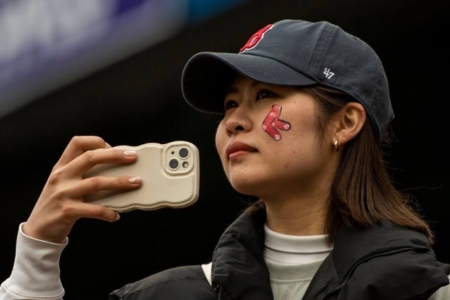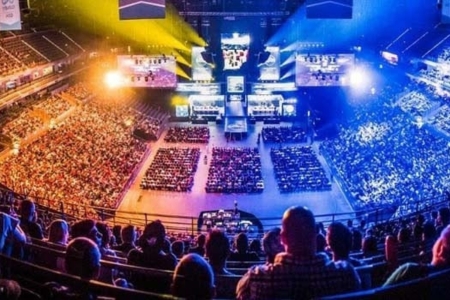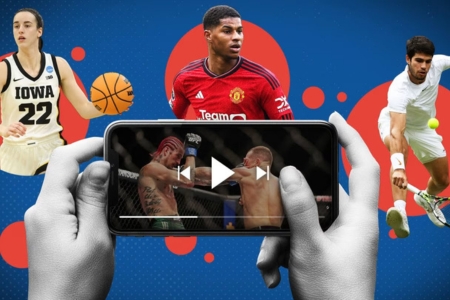Table Of Content
- 1. The Gen Z shift in sports marketing
- 2. From passive viewers to active participants
- 3. The role of social media in shaping Gen Z’s sports fandom
- 4. E-sports and gaming: A gateway to new sports audiences
- 5. The power of influencers and celebrity partnerships
- 6. The importance of personalization and authenticity in marketing
- 7. The future of Sports marketing: What Gen Z wants next
- 8. Conclusion
Gen Z isn't changing the game, but rewriting the whole playbook of sports marketing. Digital natives, who are thirsting for interactivity and authenticity, are redefining the way brands communicate with fans. E-sports and social media influencers are making the traditional methods of advertising outdated quickly. In this new era, sports marketing must be redefined in a manner that satisfies the requirements of Gen Z to have meaningful, immersive, and personalized experiences.
The Gen Z shift in sports marketing

Gen Z is leading a seismic shift in sports marketing, which necessitates more than just passive consumption. Born in a world of digital-first interaction, this generation has transformed how brands engage audiences. TV ads and stadium billboards are no longer the norm as digital, immersive, and interactive experiences replace the old. Personal, authentic engagement through virtual sports events and social media-driven campaigns by Gen Z are pushing the limits of interest for sports marketers. It represents a broader cultural shift in that fans want to engage, create, and be part of the action—reshaping the landscape of sports marketing forever.
From passive viewers to active participants

Times are long gone when people just stand and watch from the sidelines of sports. Gen Z wants to have a hands-on approach and do something more beyond mere viewership. They experience games through fantasy sports, game platforms, and social media while being an intrinsic part of the sports activity. From watching live discussions of games to making content around favorite teams, and competing in virtual tournaments, Gen Z wants to be connected to the action. Today, sports marketers need to create experiences that invite fans to play, influence, and share in the excitement of the game.
The role of social media in shaping Gen Z’s sports fandom

Social media is the pulse of Gen Z fandom in sports. Users can interact, share highlights, and start games from different angles during live situations on Instagram, or Twitter. What sports brands are trying to do is essentially connect with their fans more authentically through user-generated content, viral moments, and influencer partnerships. While Instagram provides the ground for short-form, relatable content, Instagram boasts of its creativity for immersive visual campaigns. Social media has transformed the way sports fans consume and, by extension, experience and contribute to the ambient culture of sport.

E-sports and gaming: A gateway to new sports audiences

E-sports and gaming have evolved as a platform to nurture the new generation of sports fans. FIFA, NBA 2K, and Madden NFL video games include real teams and athletes from life, giving Gen Z sports exposure in ways previously unimaginable. Games provide the interactive, interactive experience of having fans control their favorite players, compete in virtual leagues, and play along with others in global communities. E-sports is still on the rise, which acts as an entrance to more conventional sports for younger audiences, thereby opening up new touch points for brands that could potentially appeal to the live sport-obsessed fans of today.
The power of influencers and celebrity partnerships

They are not just promotion tools; in fact, influencer and celebrity partnerships are at the heart of how sports brands reach Gen Z. Influencers have significant online presence and are culturally relevant for the younger audiences to whom they speak. Sports brands can organically integrate into the daily conversations of Gen Z through collaborations with athletes, influencers, and pop culture icons. Whether it's an Instagram dance challenge with a star player or an Instagram post showing exclusive merchandise, such partnerships create some unique opportunities for connecting with the fans in ways that feel far more personal and engaging than even the best old-school advertising could ever hope for.
The importance of personalization and authenticity in marketing

Gen Z demands individualized, authentic experiences; hence, generic advertisements must give way to customized messages. Such a generation seeks content that responds to their particular interests, preferences, and values. Marketers must develop custom campaigns that engage fans on an individual level, from personalized merchandise and exclusive content to targeted digital experiences. Authenticity is the key because Gen Z will not hesitate to detect insincerity and, therefore, are attracted to brands that support their values and social causes. Personalization and authenticity work together in establishing a true connection with Gen Z fans, and engagement and loyalty are far more profound and sustainable.
The future of Sports marketing: What Gen Z wants next

Changes in the landscape of sports marketing will be through the evolution in preferences of Gen Z going forward. The subsequent generations will play AR and VR, giving new immersive experiences for connecting fans to sports in ways never seen before. Interactivity will increase even further, and integration of gaming and cross-platform experiences with much less differentiation between the digital and physical worlds. They will push brands even further into taking responsive positions on social causes that matter to consumers. Innovation, inclusivity, and authentic connection will be what drive the future of sports marketing, making fan engagement more dynamic than ever for Gen Z.
Conclusion
Gen Z does not just redefine sports marketing. They revolutionize it. Their demand for interactivity, authenticity, and personalization is changing how brands interact with fans. And so, from the rise of e-sports to influencer partnerships, social media, and a host of others, sports marketing must evolve around them. The future of fan engagement is being defined by Gen Z. The sports industry needs to innovate to stay connected, relevant, and meaningful to this dynamic, digital-first audience.



